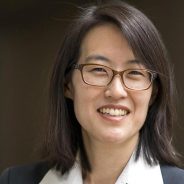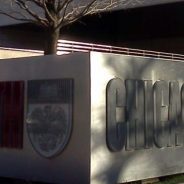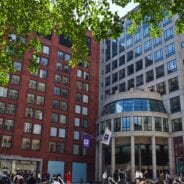Search results for :
The 5 Best Dallas Executive MBA Programs
In the world of business, the Executive MBA degree is akin to an Iron Man decathlon in which one simultaneously attempts work, life, and school with equal gusto.
Designed to reskill and get mid-career professionals up to speed on the latest management trends, the value of an EMBA as a useful negotiation tool is undisputed—especially if you can get an employer to fit the bill. If not, it’ll cost you but the investment is one that will certainly go a long way to paving a future leadership position way up the corporate ladder.
And when it comes to corporate ladders, the greater Dallas metro area has got an embarrassment of riches. The region is HQ to Exxon Mobil, AT&T, American Airlines, Southwest, Texas Instruments, JC Penney, and Gamestop, among many others on the 2017 Fortune 500. You could also do a lot worse with the area’s cultural offerings, especially if you like football, art, and authentic Tex-Mex.
Let’s take a closer look at five best Dallas Executive MBA programs:
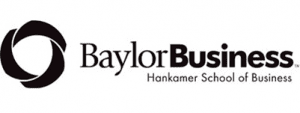
Baylor’s Hankamer School of Business
The Baylor Hankamer School of Business 48-credit, 21-month, $91,000 EMBA is designed for mid-level executives. The program emphasizes leadership skills, decision-making, human resource management, global strategic management, and contemporary business issues within a cohort lock-step structure. The 50-credit, $94,000 EMBA Healthcare curriculum does the same but specifically tailored to the healthcare sector. EMBA students arrive from a variety of companies, including Apple, AT&T, Xerox, Wells Fargo, Microsoft, Coca-Cola, Wal-Mart, and American Airlines. The EMBA does not require GMAT or GRE scores but applicants must have at least five years of work experience.

Southern Methodist’s Cox School of Business
The SMU Cox 21-month, $120,150 part-time EMBA prepares experienced business leaders to take their career to the next level by helping them move into higher executive level positions or to expand their company’s reach. The EMBA emphasizes general management practices, strategy, finance within real-world applications. Applicants are expected to have at least eight years of work experience but GMAT/GRE scores are not required.
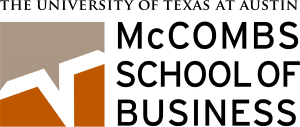
UT-Austin’s McCombs School of Business
The curriculum for McCombs School of Business 2-year, 42-credit, $116,800 EMBA is based on a cohort system in which groups of five students “encourage teamwork and development of leadership skills” among one another and each student is paired with a mentor from the previous year’s class. The EMBA covers effective communication, risk and change management and business ethics. Of the 68 students in the EMBA class of 2018, the average age is 37 and the average work experience is 14 years.
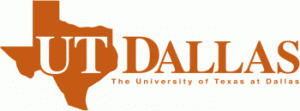
UT-Dallas’ Naveen Jindal School of Management
The UT Dallas Naveen Jindal School of Management 21-month, 53-credit, 5-semester, $85,000 EMBA was developed to prepare “experienced professionals for careers in upper management.” The cohort structure centers on “the fundamentals of business, marketplace advancement, leadership, corporate assets strategy, and data use and interpretation.” The average UT Dallas EMBA student is 40 and with an average work experience of 16 years. Applicants must have a minimum of eight years “professional business experience with international and management experience,” although GMAT or GRE scores are not required.

UT-Arlington College of Business
The UT Arlington College of Business 15-month, 37-credit, $74,500 EMBA (and accompanying Asian Business Studies certificate) is ideal for helping mid-level and upper-level managers and executives “develop the skills needed to move their company into global markets or to increase the company’s presence in a global market.” The EMBA focuses on the “skills and knowledge needed to run multinational firms, manage data, and develop effective teams that will help firms expand into global markets, maintain customer value, and build long-term customer relationships.”
Its cohort structure allows students to gain “extensive experience working collaboratively as part of a team,” which extends to the two-week Chinese immersion trip in which students develop a project specific to the region.
The average UT Arlington EMBA student is 38 with an average of 16+ years of work experience. Executive MBA students generally pay for the program through employer sponsorship, although there are scholarship and financial aid opportunities available.
Haas Hosts Discussion With Former Reddit CEO Ellen Pao
Ellen Pao, the Kapor Center for Social Impact’s Chief Diversity and Inclusion Officer, spoke at Berkeley’s Haas School of Business last week, discussing her tumultuous time as Reddit CEO, her new book, and the difficulty women face in business culture.
The Berkeley Forum and Asian-Americans@Haas co-hosted the discussion, which was moderated by Berkeley sophomore Shaina Zuber.
Prior to her much-publicized stint with Reddit, Pao, a Harvard Business School MBA graduate, worked for law firm Cravath, Swaine & Moore, WebTV, and several Silicon Valley companies, including BEA Systems. She joined Reddit in 2013 as the head of business development and strategic partnerships, and quickly filled in for the recently-departed CEO Yishan Wong in late 2014. She and the company had a mutual agreement for her resignation the following year.
Last month, she released “Reset: My Fight for Inclusion and Lasting Change” (Spiegel & Grau), which chronicles her unsuccessful 2012 gender bias lawsuit against venture capital firm Kleiner Perkins Caufield and Byers, as well as her time in Silicon Valley and with Reddit.
Pao discussed her seven years as a junior partner at Kleiner Perkins as a way to touch upon a number of topics related to how we need to work together to level the playing field for women and people of color.
“Throughout my career, there would be little things I noticed but brushed off,” she noted. Pao argues she was routinely excluded from communication, meetings, and decisions.
“Despite evidence showing that the women’s investments were doing better than the men’s, none of the women, who seemed to have more education and work experience, received promotions,” she recalled.
Pao says her colleagues distanced themselves from her and avoided in-person contact during the lawsuit. However, she did receive encouraging private messages that commiserated with her battle and confirmed the company’s sexist culture.
Pao emphasized “the importance of workplace relationships in career-building.” She concluded, “Everyone has a voice. There is a systemic problem where people are not being included. And we need to change the whole system so everybody gets included fairly.”
You can read more from the Pao interview here.
To Be Out—or Not to Be Out—in Your MBA Application?
In honor of yesterday’s National Coming Out Day, we thought we’d tackle a thorny question faced by some applicants to leading business schools: To be out—or not to be out—in your MBA application? In recent years, increasing numbers of top business schools have given applicants the opportunity to disclose their sexual orientation as lesbian, gay, bisexual, transgender, or queer (LGBTQ) as part of their application if they so choose. But what are the pros and cons of doing so? To find out, we spoke with admissions directors at schools all over the country to get their input.
The overwhelming consensus, we found, was that there are multiple positives and few, if any, negatives to sharing your sexual orientation as part of the application process provided you feel comfortable doing so. This is not to say that anyone should feel pressured to disclose anything that they are not personally comfortable sharing—just that those who feel inclined to share shouldn’t have any hesitation from an admissions standpoint.
“I Really Only See Pros”
“I really only see pros,” says Soojin Kwon, managing director of full-time MBA admissions at the University of Michigan’s Ross School of Business. “We are always encouraging applicants to be very authentic and bring their whole selves so that we have context around them. We are a very diverse and inclusive community, and we want to know every aspect of who you are and what you’ll bring to that community.”
Applicants who do disclose LGBTQ status—or even those who don’t—also can indicate that they would be interested in hearing from students in the school’s Out for Business student club, which helps prospective students get tapped into the campus LGBTQ community well before they arrive on campus. “Our current LGBTQ students absolutely reach out, embrace, and actively engage with applicants who self-identify because they want to make sure that our community is very strong on every aspect of diversity—they are very proactive,” Kwon says.
NYU Stern School of Business Associate Dean of MBA Admissions Isser Gallogly stresses that whether or not to disclose sexual orientation is a personal choice that should be based on each individual’s comfort level. “But certainly at NYU Stern—in New York’s Greenwich Village—we are obviously incredibly diverse and supportive of diversity,” he says. The LGBTQ rights movement can trace its origins to the neighborhood surrounding Stern, and a community of acceptance has prevailed there for decades.
“It Might Present Certain Advantages”
But even beyond Greenwich Village and Stern, Gallogly tells LGBTQ applicants that they shouldn’t have concerns about being out in the MBA admissions process. “Business schools are looking for diversity—we as admissions officers are always looking for different vantage points and perspectives that applicants can bring to the class. I think anything that’s a little different or unique only helps your personal story,” he says. “I don’t think there’s any disadvantage to being out in the admissions process, and, in fact, it might present certain advantages.”
Self-Identifying Is First Step to Qualifying for LGBTQ MBA Fellowship
Indeed, students who self-identify as LGBTQ at certain schools will automatically be considered for scholarship aid through the Reaching Out LGBTQ MBA (ROMBA) Fellowship Program. ROMBA is a nonprofit organization dedicated to “educating, inspiring, and connecting the student and alumni LGBTQ MBA and graduate communities in an ongoing effort to create the next generation of out business leaders.” Recipients of the LGBTQ MBA Fellowship each receive a minimum of $10,000 in scholarship aid per academic year or $20,000 in total scholarship aid for two years. In addition, they get access to exclusive mentorship and leadership programming through ROMBA. Fifty-five members of the Class of 2019 will collectively receive more than $1,300,000 for each year in business school, ROMBA reports. “Since 2015, 35 schools have awarded $6.3 million to LGBTQ applicants who were out on their applications,” adds Matt Kidd, ROMBA Executive Director.
Beyond self-identifying through a school’s application form, applicants interested in being considered for the ROMBA fellowship are encouraged to demonstrate LGBTQ leadership roles on their resume, express interest in business schools’ on-campus LGBTQ clubs, and share relevant LGBTQ leadership experiences in their application essays.
YOU MIGHT ALSO LIKE: This Year’s Reaching Out MBA LGBTQ Conference Arrives in Boston
Prem Tumkosit, a 2011 MBA graduate from Yale School of Management (SOM), didn’t explicitly disclose his sexual orientation on his MBA applications. When he was applying, that option was provided by fewer schools. “But I did list my participation and leadership positions in LGBT organizations, which I felt was essentially disclosing,” he says.
Gallogly adds that current students are frequently shocked and surprised—once they begin the recruiting process—by how many corporations are likewise looking for diversity, including in sexual orientation. “The short story is if you feel comfortable, I would go for it [disclose sexual orientation], because you will see opportunities to receive support,” he said. “Short story: It’s a good thing.”
Opt in to Get Connected to On-Campus Groups
Bruce Delmonico, Assistant Dean and Director of Admissions at Yale SOM, says that his team considers it so much a positive that he sometimes has to stop and remind himself that some applicants might actually wonder if it could be viewed as a negative. “We consider it an aspect of diversity, so we certainly don’t see any negative in it,” he says. As at Ross—and many other schools—Yale SOM also allows applicants to opt-in to receive communication from LGBTQ students and groups, which helps facilitate valuable connections both during the application process and in the months leading up to school’s start.
“I really don’t see any negatives to it,” Delmonico continues. “People sometimes choose not to disclose, and obviously that is fine—it’s everyone’s individual choice,” he notes. “It can still be a difficult thing—and people are at different stages in terms of their own self-identification—so it is not as though not sharing is viewed negatively. But it is an aspect of diversity that we think about as we are trying to put together our class, so we view it as a positive.”
Delmonico does share that Yale has seen an increase in the number of people self-identifying as LGBTQ. “I think that’s a good thing,” he says, “but we do want to make sure people are being accurate in self-reporting,” he adds. Especially outside of the United States, he worries that not everyone knows what it means to identify as LGBTQ.
Don’t Self-Identify as LGBTQ If You’re Not LGBTQ
“We also sometimes have to wonder if some candidates might be looking to game it a little bit,” he says. “That’s something we are starting to be sensitive to. We look at it as a positive—but we don’t want people just checking the box because they think it might give them a little boost over other applicants.” To offset potential gaming of this system, his team has begun to dig a little deeper to see what being LGBTQ means to those who check the box. “It’s not something we would ask about in an interview,” he stresses, “but we will look to see what else they might have shared” that might support their LGBTQ status. “It can be helpful, if you are self-reporting, if you share some way you are expressing that already,” he says. For example, some people write about LGBTQ themes in their essays or talk about related groups they’ve been part of, he says.
Amanda Carlson, Assistant Dean of Admissions at Columbia Business School, shares that her team also saw an uptick in self-reporting among applicants for the Class of 2019, particularly from certain regions. “I am saying this somewhat tongue and cheek,” she notes, “but it’s like some admissions consultant told candidates in China that saying you are part of the LGBTQ population is a good thing, because I think every single Chinese candidate this year checked the box.” Of course, she met personally with Chinese candidates who were quite genuinely members of the LGBTQ community, she adds, but she also wonders if there was some confusion among some applicants about what LGBTQ means.
“At the same time, we recognize that there is an appeal to being in New York—where people rightly feel that being LGBTQ is a warm and accepted thing—where it may not always be in China,” she notes.
Is LGBTQ Inclusive Enough?
Maryellen Reilly, deputy vice dean of admissions, financial aid, and career management at the University of Pennsylvania’s Wharton School, echoes what other admissions directors have said, adding that for some students it can also be liberating. “Some students may not have been out in high school or college and it can be liberating to share it as part of applying to business school—to get to say, ‘Here I am—this is who I am,’” she says. “It’s one less thing you have to worry about hiding at school.” As for a con to self-reporting, “I kind of don’t know that there is one—I can’t think of one,” she says.
Reilly remembers the process that her team went through when they first started thinking about adding the opportunity to self-identify as part of the application. “Did you know that Facebook has 50 different categories around sexual orientation?” she asks. She didn’t. “My mind was blown.” One of the students championing the cause argued that Wharton needed to include all 50. “It’s a spectrum—and we did a lot of learning from an admissions perspective,” she says. “Our LGBTQ community was really strong and vocal, and meeting them where they are required some give and take on both sides,” she says.
So far, her team hasn’t seen any candidates that it thinks might be trying to gain an unfair advantage by claiming to be LGBTQ when they aren’t. “We haven’t seen anything remotely like that—that’s a bridge we’ll cross when we get there, should we get there.”
Jennifer Redmond, a 2016 Wharton MBA graduate, did NOT disclose as part of her application that she is LGBTQ although the option was available when she applied. Prior to business school she worked in London in finance and hadn’t been open about the fact that she identified as a lesbian at work. “Being in Europe, I was reluctant to come out and potentially not have a great reception,” she says. That hesitation carried over to her MBA applications. “In retrospect, my advice to prospective applicants would be that you can tick that box,” she says. “It is completely confidential, and it’s a good way to get looped into all the activities that are available to members of the LGBTQ community.”
Redmond would later attend a welcome weekend at Wharton, where the Out4Biz student club hosted welcome drinks. “It was one of the biggest parties of the weekend, and it became clear to me that the LGBTQ community occupied a very central part of life at Wharton,” she says. “That ended up being a big part of my decision to attend.” When she did move over from Ireland to attend pre-term at Wharton, her roommate was gay and HAD ticked the box. “He was so much more looped into things than I was to start—it made me a little rueful I hadn’t ticked the box myself,” she says.
This article has been edited and republished from Clear Admit.
This Year’s Reaching Out MBA LGBTQ Conference Arrives in Boston
The ROMBA LGBTQ MBA and Graduate Student Conference, the largest annual gathering of LGBTQ graduate school students in the world, takes place Boston this week, running from October 12-14. It is presented by Reaching Out MBA (ROMBA), a nonprofit organization dedicated to helping create the next generation of out business leaders by educating, inspiring, and connecting the student and alumni LGBTQ MBA and graduate studies communities.
The 20th annual three-day conference offers thousands of attendees an incredibly unique opportunity to connect and expand their careers with a close-knit and inclusive community. Included in the ever-expanding event are multiple case competitions, high-profile keynote speakers, information chats with MBA programs, the first inaugural “Professional Day” session and much, much more.
Day One
Those in attendance on Thursday, Oct. 12, will have the chance to join the first of two Boston LGBTQ MBA Treks. Through a competitive application process, 20 students are selected to join each of the treks. One trek will make stops at two of the city’s more prominent biotech companies and the other will visit two leading management consulting firms.
Throughout the first day, which runs from 2 to 11 p.m. at the Boston Seaport World Trade Center, corporate partners are invited to meet with Reaching Out’s staff and Board on future ROMBA events, both in the United States and in international locations like Brazil and China. An Out Women in Business event will run from 3 to 7 p.m., featuring “short-form talks, a panel discussion, and structured workshop, designed to bring together our LGBTQ attendees and to focus on issues that specifically apply to and interest them.” It will be followed by a formal reception.
As well, the first day will feature multiple panel events designed to help attendees navigate the recruiting process. These panels will address potential first-year grad school anxiety, how companies can appropriately measure and expand inclusive practices, interview assistance, and more. The first night concludes with the aforementioned Out Women In Business ceremony, a ceremony for active and previously enrolled military veterans, and the invitation-only ROMBA Fellowship Recipient Reception.
Day Two
Day Two, Oct. 13, begins with a breakfast and opening keynote panel, featuring three of the business world’s most prominent LGBTQ C-suite members: Jim Fitterling, president & chief operating officer of Dow Chemical; Beth Ford, executive vice president and chief operating officer of Land O’ Lakes; and Jan Siegmund, ADP chief financial officer.
Several informative industry panels will take place throughout Day Two, covering topics such as coming out and thriving in the workplace, handling big data, inclusive networking, diversity in the tech industry, and much more. Later that afternoon, McKinsey Global Management Partner Dominic Barton and United Therapeutics’ CEO Martine Rothblatt will speak at the Leadership Lunch, sponsored by McKinsey and Co.
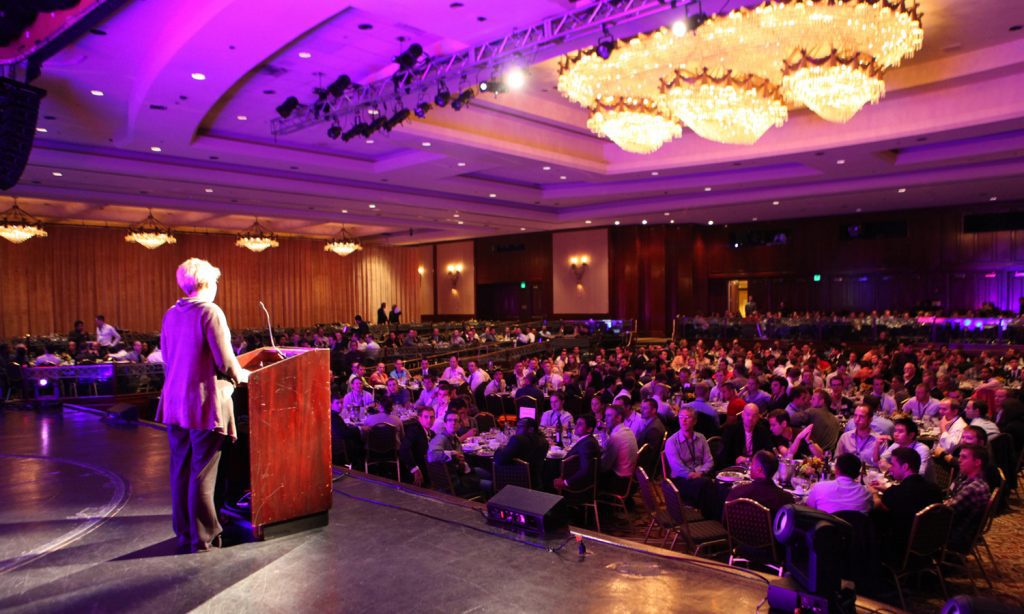
The 2015 ROMBA Conference
The centerpiece of Day Two is the three-hour Career Expo, which will feature nearly 100 of the world’s largest companies looking to recruit the best and brightest of LGBTQ graduate talent. At the same time, ROMBA will host an Entrepreneurship Expert Zone, which allows entrepreneurs to present their startup ideas to potential venture capitalist partners.
The night will conclude with the LGBTQ MBAs of Color Reception, taking place at from 6 to 7 p.m., followed by a pre-entertainment networking reception, and an “Evening With” popular LGBTQ comedian Margaret Cho at 9 p.m.
Day Three
Day Three will perhaps mark the most important of the conference as it relates to earning admission into the country’s best MBA programs. At 10 a.m., more than 40 business schools will join the Pre-MBA Admission Expo. The event “will have a mix of admissions officers, LGBTQ MBA alumni, and current LGBTQ MBA students on-site to share information about their programs & experiences on campus with our pre-MBA attendees.”
The afternoon will be filled with pre-MBA sessions on why some students may want to consider dual-degree programs, regional networking, alumni discussions, and more. At 5 p.m., many schools will host their own private sessions with current students, alumni, and administrative officials..
The final night culminates with the 7 p.m. ROMBA Gala Reception and the sold out GALA Dinner, featuring CNN journalist Anderson Cooper, the conference’s keynote speaker.
To find out how to register for this weekend’s event, along with a more in depth look at the three-day schedule, head over to the ROMBA official website.
Want To Work For NBCUniversal? An MBA Can Help
NBCUniversal is among the world’s largest entertainment companies, bringing “the development, production, and marketing of entertainment, news and information to a global audience.” From television networks and a motion picture company to theme parks and Internet-based businesses, NBCUniversal is the perfect place for an MBA to put their degree to work.
NBCUniversal History
Both NBC and Universal were founded in the early 20th century, with Universal opening in 1915 as “the only moving-picture city in the world” and NBC as the nation’s first permanent radio networking beginning in 1926. Over the years, the companies have been responsible for some of the most memorable moments of entertainment history, such as the 1936 Berlin Olympics broadcast over NBC Radio, hosting the first presidential TV debates between John F. Kennedy and Richard Nixon on NBC in 1960, and the premier of now-classic films like Back to the Future on Universal.
In 2004, NBC and Universal officially became one company—NBCUniversal—joining together cable networks like USA, SCI FI, Bravo and others with Universal’s movie studio and theme parks in Hollywood and Orlando.
Why Work at NBCUniversal?
With such a vast portfolio of companies and networks within NBCUniversal, someone with an advanced business degree can find a number of places throughout the company that can benefit from their in-depth business knowledge and leadership. Roles are available at the company all throughout the country in a number of business fields such as Human Resources, Business Development, Communications, Finance & Accounting, Marketing, Ad Sales, Public Relations, and more.
Getting Your Foot in the Door
NBC Universal offers a number of Internships and Campus 2 Career programs that give opportunities to both undergraduate and graduate students, with many of these opportunities can lead to full-time roles. Through the Campus 2 Career center at NBCUniversal, a number of roles are available in fields like Marketing, Human Resources, Web Content Management, Ad Sales and more.
Every semester, recruiters from NBC Universal request interns through the Campus 2 Career center. The company also hosts special recruiting and networking events, working alongside organizations such as the Society of Hispanic Engineers or the National Black MBA Association (NBMBAA).
YOU MIGHT ALSO LIKE: Top MBA Recruiters: Time Warner
Typically, internships at NBCUniversal run from three to four months long, coinciding with the school semesters. The internships are paid, although salary varies by department, and—while not guaranteed—can often result in getting hired for a full-time role with the company.
For recently graduated MBAs, the company also offers a number of Early Career & Leadership programs, such as the East/West Coast Page Program or the Experienced Commercial Leadership Program.
What Type of Jobs are Available?
Through the Campus 2 Career program, NBC Universal has a number of openings for interns in a variety of business departments. Below are just some of the roles currently available at the company which specifically seek MBA candidates.
- Digital Distribution MBA Intern—Universal City, CA
- MBA Strategy & Business Development Intern—Universal City, CA
- Home Entertainment: MBA Strategy Intern—Universal City, CA
NBCUniversal is dedicated to advancing the careers of individuals who are passionate about their work and want to move into higher-level management or leadership roles. Programs like the International Future Leaders Programme expose early-career post-graduates to four different roles over the course of two years, allowing them to experience work in all three of the company business units. Participants in this program will also gather together at the end of the program to work on a project with a real impact within the company. They will also attend a number of courses specifically designed to train up-and-coming managers.
Programs like the NYU Stern School of Business full-time MBA, which gives students an opportunity to focus their studies towards earning a career in the entertainment industry, give a definitive advantage. Several Stern MBA grads do, in fact, work with the entertainment giant.
Even if the path of an MBA may not be your preferred journey, you can always become a page.
Howard University Hosts Nick Cannon for Fireside Chat
The Howard University School of Business and JPMorgan Chase recently came together to host a for a “fireside chat” with Nick Cannon, discussing business, success, and education.
The event, which took place on September 25, was open to the Howard community and hosted by Noah Wintroub, Vice-Chairman at JPMorgan. Wintroub has worked alongside some of the most globally recognized names in tech and entrepreneurship as they went through the process of building their businesses.
“Howard University has a successful history of pairing top students with top companies for networking and career opportunities. We are thrilled to partner with JPMorgan Chase and Nick Cannon to provide this informative event to Howard students,” Howard University Dean Dr. Barron H. Harvey said. The actor and producer enrolled at the university in 2016.
The hour-long event was free to students who registered in advance and took place at the University’s School of Business Auditorium. The conversation between Wintroub and Cannon centered around his career as an actor, comedian, host, writer, and the many other roles he takes on, as well as how he is able to build a professional brand while pursuing his undergraduate degree at Howard. The chat also included a question & answer segment for students to engage directly with the participants.
Cannon is coming off what may have been his biggest and most tumultuous year of his professional career, departing as the host of ABC’s America’s Got Talent (which he also produced) after eight seasons. Cannon’s MTV staple Wild n’ Out concluded its ninth season in early October, of which he is still an Executive Producer.
This is not the first time Howard University has partnered with JPMorgan Chase. A leader in global financial services, JPMorgan serves millions of consumers throughout the U.S. as well as prominent corporate, institutional, and government clients. Every year, the company hires top talent from the university to participate both in full-time roles and at the company’s highly-selective summer internship.
Social Impact MBAs: Programs That Help Students Make a Difference in the World
For years, social impact has been a growing area of emphasis at business schools. Increasingly, MBA students are stating that a well-paying career isn’t enough: They also want to make a difference.
As Sherryl Kuhlman, the managing director of the Social Impact Initiative at the University of Pennsylvania’s Wharton School, told U.S. News & World Report: “Our students want to make the world go round in a different way. [They are no longer willing to] take a job they don’t like so they can give their money away later. They want to merge the money and the purpose.”
MBA programs incorporate social impact into their programs in various ways, through global experiences, coursework, clubs, competitions, and more. MBA students may also have opportunities to team up with corporations, government agencies, and nonprofit organizations to get hands-on experience during their graduate studies.
So if you’re interested in social impact, what opportunities should you look for within an MBA program?
Centers and Initiatives
Some schools run entire centers and initiatives dedicated to the idea of social change. Typically, these centers provide the foundation around which a variety of social impact opportunities are built, including research, career help, events, and course development.
For example, the McCombs School of Business at UT Austin recently launched its Social Innovation Initiative, which provides students, faculty, and the community with preparation to promote social change. The initiative offers graduate-level curricular offerings, with courses such as “Energy Technology and Policy” and “Invisible Global Marketing.” There are also many extracurricular activities such as the Social Impact Investment Fund, a peer-created fund that provides financial support for MBA students pursuing internships in the social impact space.
“The creation of the Social Innovation Initiative is a crucial step in bringing UT’s overlapping communities together to collectively address the world’s most pressing challenges,” Dr. Meeta Kothare, managing director of the initiative, said in a press release. “The interdisciplinary nature of the initiative is key because the most impactful social innovations often result from collaborations among private, public, and social sectors.”
At Stanford Graduate School of Business (GSB), the Center for Social Innovation aims to bring about social and environmental change through research, education, and experiential learning opportunities. For MBA students, the center offers social innovation courses, study trips, the potential to participate in an investment committee, and fellowships to provide leadership opportunities. The school even hosts an annual ceremony each spring drawing together a tight-knit core of students, faculty, and alumni who share a commitment to social innovation. Three classes of awards are handed out to a dozen students at the event, and Dean Emeritus Arjay Miller, 101, attends to encourage the continuation of a community of social innovation he helped found at the GSB while dean from 1969 to 1976.
Then, there’s the Yale School of Management Program on Social Enterprise. This initiative supports faculty, students, alumni, and practitioners in their pursuit of using business skills to achieve social objectives. It does this by offering a span of programs including courses such as “Global Social Enterprise” and “Managing Sustainable Operations,” as well as research, conferences, and publications. For extracurricular activities, students can participate in the Social Impact Lab, a weekly forum with opportunities to engage with industry leaders and each other, as well as the Economic Development Symposium, an annual conference that brings together eminent scholars, action agents, and key opinion leaders to work on solutions to pressing economic development issues.
Programs
For many business schools, social entrepreneurship is offered part and parcel with their MBA degrees. These programs can range from a one-week social enterprise trip overseas to a formal concentration within the MBA program.
At Northwestern University’s Kellogg School of Management, MBA students can elect a Social Impact pathway concentration. This pathway is designed for students who want to create positive social change and includes required courses on a variety of topics from “Leadership and Crisis Management” to “Public Economics for Business Leaders” and “Health and Human Rights.” Within the pathway, there are three tracks: policy, nonprofit, and social innovation, each offering in-depth coursework to position students for their desired careers.
Meanwhile, MBA students at Emory’s Goizueta Business School can explore social impact through an annual seven- to 10-day Social Enterprise @ Goizueta Trip. These trips take students to countries around the world to observe the challenges that local economies face and develop market-based solutions. Alumni and evening MBA students can also travel to Nicaragua to visit coffee farms and meet growers. Full-time MBA students can visit Nicaragua or El Salvador to explore social enterprises on the ground and work on community health projects.
Competitions
Some schools offer hands-on experience in social impact to their students in the form of social venture competitions.
Through Harvard Business School (HBS)’s Social Enterprise Initiative, which aims to educate, inspire, and support leaders across all sectors to create social change, MBA students can participate in the New Venture Competition (NVC). The competition offers participants a grand prize of $50,000 as well as workshop opportunities, feedback, and business plan development advice.
Designed for students and alumni interested in using their business skills to create innovative approaches to tackling social problems, the Social Venture Competition at NYU Stern School of Business is similar to that of HBS’s NVC. Over the last 11 years it has awarded more than $900,000 to startup social ventures developed by students.
Clubs
Net Impact is one of the most popular social impact clubs, with chapters across the globe. More than 100,000 individuals have joined more than 300 chapters across the world to take on social challenges, protect the environment, and orient business toward social impact. The Net Impact chapter at UCLA Anderson School of Management, for example, has been awarded Gold Status, which recognizes it as a high-performing chapter and qualifies it to serve on the national Net Impact advisory board.
One of highlights of Net Impact is the annual Net Impact Conference, which welcomes attendees from across the globe to hear from keynote speakers, such as Clif Bar CEO Kevin Clearly and Derreck Kayongo, the CEO of the Center for Civil and Human Rights. Attendees at the Net Impact Conference can also take part in a variety of workshops, panels, and boot camps on topics ranging from civic engagement to equity.
In addition to Net Impact chapters, many MBA programs also offer their own social enterprise-focused student organizations. For example, the Social Enterprise Club at Columbia Business School connects students with faculty, alumni, professionals, and organizations to develop business skills and create social, environmental, and economic value.
Scholarships
At Oxford Saïd Business School, MBA students have the opportunity to apply for the Skoll Scholarship, a competitive award for students pursuing entrepreneurial solutions to urgent social and environmental challenges. The scholarship provides funding as well as opportunities for the award winners to meet and interact with world-renowned entrepreneurs, thought leaders, and investors. To qualify, an applicant must have three years of experience in social enterprise and be an incoming MBA student.
At Duke’s Fuqua Business School, there’s the CASE Social Sector Scholarship for incoming daytime MBA students. Scholarship recipients receive at least 25 percent tuition support as well as funding from the CASE Summer Internship Fund. Incoming MBA students who can demonstrate their commitment to applying their business skills in the pursuit of social impact are eligible to apply.
This is far from an exhaustive list—rather it’s a sampling of the wide-ranging opportunities to study social impact across MBA programs around the world. We hope it can provide a jumping off point as you begin to investigate social impact opportunities at your target schools.
This article has been edited and republished with permissions from Clear Admit.
Finding the Best One Year MBAs in Philadelphia
Most applicants pursuing a one-year MBA generally know which industry or area of concentration they want to pursue. They are MBA candidates who want to advance their current careers, not switch them. Others chose the one year route because it can be difficult to leave two years of work and salary. If you’re a prospective MBA in the Philadelphia metro looking to make moves within your industry, we’ve outlined some of the best one year MBA options available. Continue reading…
Part-Time MBA Battle: Los Angeles vs. San Diego
When someone decides to pursue an MBA, there are a lot of decisions to make. From choosing between full-time and part-time programs and deciding on the perfect city in which to launch your business career, there are a lot of factors to take into consideration.
For prospective MBA students who want to maintain the momentum of their career—rather than take a break for the degree—and earn all the benefits and job growth of an MBA while preserving flexibility, a part-time MBA program may be perfect. But even when you’ve settled on the type of degree you’d like to receive, choosing where to pursue that degree can be a challenge.
It’s well-known that the Golden State has a number of business centers—even outside of the famous Silicon Valley and San Francisco—and can be the perfect place for someone to earn a degree or start their business career. With excellent part-time MBA programs in business hubs like San Diego and Los Angeles, it can be difficult for students to figure out the city and program that is perfect for them.
San Diego
Although San Francisco is well known around the world as a hub for startups, it was ultimately San Diego that took the top spot on Forbes‘ list of the “Best Cities to Start a Business.” Rated the fifth-best business community in the country, San Diego’s community of entrepreneurs has been growing exponentially in recent years.
Some businesses may be concerned about San Diego’s high real estate prices or high taxes for businesses. Yet, with a comparatively low cost of living—in contrast to New York or San Francisco—the benefits for a business (especially a new one) in San Diego may far outweigh any concerns.
There are three main part-time MBA programs in San Diego: the Rady School of Management at UC San Diego; the California School of Management & Leadership at Alliant University; and the Fowler College of Business Administration at SDSU.
Rady’s part-time MBA, better known as the Flex MBA, is the top-rated part-time program in the metro area. Students can complete the program on two distinct paths: the FlexWeekend track or the FlexEvening track. FlexEvening students attend classes on two nights per week over the course of 30 months, while FlexWeekend students attend classes on Fridays and Saturdays on alternative weekends. Unlike the FlexEvening option, however, this FlexWeekend path can be completed in 24 months, while still offering flexibility around professional work schedules.
At the California School of Management & Leadership, the MBA program requires students to take a full course load but offers the schedule and flexibility of a part-time program. Providing a strong foundation in business, leadership, and analytical skills, Alliant’s program can be taken either on campus in San Diego or completely online. The courses are entirely offered in the evening and all scheduling is done in consideration of working professionals. Even with the incredibly flexible schedule, however, students will take a full course load of two courses per eight-week term and therefore can still complete their degree in just two years. The program also allows students a number of concentrations to further focus their education.
At the Fowler College of Business, the part-time MBA requires students to complete 15 classes (or 45 units) total, but allows students three-to-four years to complete their degree, rather than just one or two. Classes are typically offered during evening hours and allow students to continue in full-time jobs. The program requires 15-21 units of core courses as part of the degree, but also permits students to use their additional elective credits to focus in a concentration such as international business, accounting and more.
Los Angeles
While it might seem like the film industry dominates the LA metro, it is also a vibrant and growing city for business, tech, and entrepreneurship. Between the diversity of the city, which brings together people from around the world, and a population bursting with creativity, it can be a perfect place for people to show off their talents, and that just might be in marketing, sales, or getting a new company off the ground. Many of the most successful companies in the country have had their start in Los Angeles, such as CitySearch (sold to Ticketmaster for $260 million) or LowerMyBills (sold to Experian for $330).
Several part-time MBA programs in Los Angeles include:
- Peter F. Drucker and Masatoshi Ito Graduate School of Management – Claremont Graduate University
- Graziadio School of Business and Management – Pepperdine University
- Marshall School of Business – USC
The Drucker and Masatoshi Ito Graduate School of Management offers a part-time MBA program for working professionals which takes roughly two and a half years to complete and includes two sessions over the summer. The part-time program is similar to full-time, offering classes that provide a strong business foundation such as Quantitative Methods and Marketing Management or Managerial Accounting. Students can still be active in the workforce while earning their degree, but if they have time away from their jobs they can also pursue study abroad in countries like China, New Zealand, or the Czech Republic.
The Graziado School at Pepperdine’s part-time MBA is available to students either on-campus, online, or a combination of the two. The program can also be pursued at any of Pepperdine’s four campus locations in the Los Angeles metro area. The program consists of 52 semester units with the opportunity to specialize electives in areas such as Dispute Resolution or Organizational Change.
The part-time MBA at USC’s Marshall School of Business allows students to take classes only in the evenings and weekends, and can be completed in 33 months. The credits are evenly split between elective and core courses with the option of almost 100 elective courses offered ever year. After 12-months of core courses, all part-time students will also take PM.GLOBE, a semester-long macroeconomics class which also includes a 10-day international trip.
Which Dallas MBA Programs Offer the Best Starting Salary?
It’s naive to think that folks who earn their MBA degree don’t expect to earn a decent salary. After years of balancing work, studying, and life, an MBAs starting salary is the cherry on top of the grad school sundae. For those looking to work in or are attending school in the Dallas metro, here are the programs that can help you find that well-deserved pay day the fastest.
High Rollers
McCombs School of Business – University of Texas at Austin
According to statistics provided by the McCombs School of Business school, the average full-time MBA student goes on to earn a starting salary of $113,481 following graduation. The average full-time MBA grad also receives a signing bonus of $27,564. A full breakdown of McCombs full-time MBA salary statistics can be found here.
The McCombs School of Business is usually ranked among business schools in the U.S. for the number of MBA graduates who earn job offers. In fact, career planning is also built into the curriculum of the full-time MBA. During the first year students take a class called Strategic Career Planning—a course that was created to best prepare students to make career choices and help them achieve their career goals. The class teaches students skills like interview training and marketing and networking techniques.
Cox School of Business – Southern Methodist University
According to SMU’s MBA Placement Data, graduating MBAs at the Cox School of Business earn an average salary of $96,587. Recent Cox MBAs have been offered jobs at companies such as Amazon, At&T, Capital One, Deloitte, and more.
Students have the option of customizing their education by completing up to two concentrations in addition to the MBA program. While all full-time students are enrolled in the General Business concentration, additional majors include: accounting, business analytics, finance, general business, information technology and operations management, management, marketing, real estate, and strategy and entrepreneurship. MBAs majoring in strategy, general management, leadership, and consulting earn a bit more, averaging $108,333 to start, while accounting, finance, and real estate majors earn a bit less, averaging $94,173 annually.
Next Tier
Neeley School of Business – Texas Christian University
The TCU Neeley School of Business full-time MBA program is designed for professionals who may not necessarily have a background in business, but are interested in changing careers or transitioning into a new field where business and management knowledge would be necessary. According to StartClass, TCU MBAs earn an average salary of $89,579 post-graduation.
To help secure a job with a well-paying salary, MBA students have access to The Neeley Professional Development Center and the Graduate Career Services Center. The Professional Development Center provides Neeley students with personal and professional training and coaching for presentations, business writing, and career preparation. Meanwhile, the Graduate Career Services Center provides students with resume help, job search, networking events, career coaching, interview prep, and skill building programs.
CHECK THIS OUT: “The Most Affordable MBA Programs in Dallas“
Commerce College of Business – Texas A&M University
Different from the Mays School of Business on A&M’s main campus, the Commerce College of Business is located about one hour northeast of the Dallas metro. PayScale data reveals that Texas A&M Commerce MBAs earn a starting salary of $89,393.
Commerce students have access to the office of Career Development, which offers students special events such as networking nights, job shadow programs, business etiquette dinners, career fairs, and job search workshops. The CD can also help students with resume and cover letter consultation, LinkedIn consultation, mock interviews, career assessment, and counseling and employment application
Naveen Jindal School of Management – University of Texas at Dallas
Students who graduate with an MBA degree from the Jindal School of Management at UT Dallas earn an average starting salary of $86,644.
According to U.S. News, MBA graduates from the Naveen Jindal School of Management have the best salary-to-debt ratio of any ranked school. As stated above, Jindal MBAs earn an average starting salary of $86,644 and have an average student loan debt of $7,132—an earnings-to-debt ratio of 12.148. The average ratio for ranked business schools that reported the data is 1.986.
Up-And-Coming
Hankamer School of Business – Baylor University
Baylor Hankamer School of Business MBA graduates earn a reported average starting salary of nearly $65,000. Recent Baylor full-time MBA graduating class had a 64 percent job placement rate at the time of graduation and 86 percent placement rate 90 days after graduation.
University of North Texas College of Business
PayScale reports that the average starting salary for North Texas College of Business MBA grads is also $65,000. North Texas features the Career Center at the Business Leadership Building where students receive one-on-one advising, career planning, and career exploration help from graduate advisors. These advisors help students with résumé and cover letter writing as well as mock interviews.
Chicago Booth Alum Pair Give $75 Million to Their Alma Mater
The University of Chicago Booth School of Business’s coffers just grew—and its top scholars will be called by a new name—thanks to a $75 million alumni gift announced today. In recognition of the gift, students who earn highest academic honors while at Booth will be known as the Amy and Richard F. Wallman Scholars, after donors Amy Wallman, MBA’75, and Richard Wallman, MBA’74. The Wallmans’ gift will be used to support several initiatives, including scholarships for students in the full-time, evening, weekend, and executive MBA programs, as well as enhanced co-curricular programming, faculty research, and emerging priorities.
“We have great affection for the University of Chicago—the Booth School of Business is world class, and we hope our gift makes it even better,” Amy Wallman said in a press release. “The Booth School is very special to us not only because we met there,” Richard Wallman added, “but also because we have sponsored 26 scholarship recipients over the years and are delighted to have had a modest impact on these students’ lives.”
Amy Wallman began a 26-year career at EY after completing her Booth MBA, retiring as an audit partner in 2001. She later served as director at pharmaceutical firm Omnicare from 2004 to 2015. Richard Wallman began his post-MBA career with the Ford Motor Company and went on to serve as chief financial officer and senior vice president of Honeywell International Inc., a diversified industrial technology and manufacturing company, and its predecessor AlliedSignal, from 1995 to 2003. He also held senior financial positions with IBM and Chrysler Corporation.
Dean Madhav Rajan, who took the helm at Chicago Booth this past July, welcomed the generous gift, calling it an “endorsement of Chicago Booth’s enduring strengths, in our programs and our extraordinary faculty.” Continued success rests on maintaining and extending the school’s prominence in research and in developing the world’s next leaders, he added.
“The Wallman Scholars will be recognized as preeminent in this cadre of future leaders, modeling the potential and the spirit of their benefactors,” Rajan said. The permanent designation will be bestowed upon graduating MBA students who earn high honors at Booth. It will also be given retroactively to top alumni, according to the school’s press release.
YOU MIGHT ALSO LIKE: Chicago’s Best 1-Year MBA Programs
The Wallmans, for their part, shared that they were impressed with Rajan’s vision for the school and hope their gift will help advance that vision. “This is a unique opportunity to make a difference in the careers of Chicago Booth students for generations to come and express our gratitude to those who have helped us,” Amy Wallman said in the press release. “Our parents were great role models to both of us; they gave us the confidence that we could accomplish anything.”
Richard Wallman also shared appreciation for the impact working for former Honeywell International Chairman and CEO Larry Bossidy had on his career and his life and thanked friends at Centerbridge Partners and Merrill Lynch, whom he called “key enablers of this gift.”
For more about the Wallmans’ $75 million gift to Chicago Booth, click here.
This article has been edited and republished with permissions from Clear Admit.
How An MBA Degree Can Land You a Job at Pfizer
MBA grads looking to make headway in an ever-expanding field with massive growth potential should look no further than healthcare and pharmaceuticals. There’s a reason more and more business school graduates have begun to pursue pharma over more tried-and-true post-MBA paths like real estate, consulting, and finance: the pharma industry offers a myriad of opportunities. There’s an almost inexhaustible supply of interesting problems to solve while earning boast-worthy salaries.
When it comes to major industry players, Pfizer is one of the undisputed global pharmaceutical leaders. Many of its products have burrowed their way into popular consciousness—both figuratively and literally. Lipitor, Viagra, Zoloft, Xanax, Advil, ChapStick, Preparation H, and Robitussin are iconic brands unto themselves.
Below, we’ll take a deeper look into exactly how MBAs can gain a foothold at Pfizer.
Why Do MBAs Love Pfizer?
Pfizer’s name brand recognition just so happens to correlate with a stellar internal reputation among employees, both past and present. Forbes, Fortune, LinkedIn, CareerBliss all consistently rank Pfizer as one of the happiest, most employee-centric, and/or most in-demand employers in the American pharma space.
In an interview with the Stevens Institute of Technology blog, Pfizer Senior QA Manager Bill Mestrandrea, a Stevens MBA alum, spoke of the deep camaraderie that he has with his fellow MBAs at Pfizer, comparing it to a “band of brothers.”
He elaborates: “We’re all in it together. I’ve met people from other departments who my work influences, and they’ve influenced my work as well. It gave me a better understanding of the network within Pfizer, and how it all comes together to form one company, always working in support of our patients.”
An anonymous former Pfizer employee took to Glassdoor to extol the company’s virtues: “If you can keep up with the fast pace and are not overly sensitive, Pfizer is a great to work. Everyday is an adventure and the benefits are excellent.” An anonymous Technical Specialist in the New York branch lauded Pfizer’s “great gym, clinic, cafeteria, and day care” in a Forbes profile.
Payscale reports that MBAs earn an average starting salary of around $121,000. Pfizer prides itself on a competitive compensation and benefits package that rewards employees “based on the contributions they make to [the] business.”
The company offers a number of in-house health and wellness programs, including health and disability insurance, medical screening, free or reduced-cost vaccinations, discounts on Pfizer products, and nutrition and fitness counseling. As part of the benefits package, Pfizer also offers access to colleague-directed retirement funds, company contributions to retirement financial vehicles, life insurance, and financial planning education.
Working at Pfizer
If there’s a common thread that runs through day-to-day life for all MBA grads at Pfizer, no matter their function, it’s that they’re all expected to move quickly and keep up with the constant demand. Pfizer is sympathetic and has sought out solutions to help acclimate first-year MBAs—namely, its Summer Associate Program, which has placed alum in full-time roles for the past 15 years.
Pfizer’s 10-12 week Summer Associate Program recruits and provides “first-year MBA students from top-ranked business schools … with a variety of unique experiences that will serve to develop and broaden critical skill sets and competencies as they progress their development towards leadership roles within Pfizer.”
Students are assigned challenging projects within Consumer Marketing, Corporate Audit, Corporate Finance, Global Procurement, Pfizer Consulting & Execution, and Pharmaceutical Marketing. By the end, Summer Associates “gain a wealth of valuable industry knowledge, networking opportunities, and life experiences.”
According to Pfizer, “MBA Summer Associates receive an industry competitive salary, housing support options and the prospect of conversion to a full-time opportunity upon the completion of their MBA degree.”
Jane Scholl (Columbia Business School ’12), whose healthcare resume stemmed from a desire to “improve the lives of others,” discussed the way her 2012 internship led to a position with the Marketing Rotational Program the following year:
“Though I only spent three months with Pfizer during the summer, I was treated as a valued member of the team rather than an intern. I was encouraged to share my thoughts and ideas even if they differed from those of other colleagues. I worked on meaningful projects that contributed to the business, and some of my recommendations were implemented before the end of the summer.”
Oindrila Sardar (Chicago Booth ’11), a Senior Manager at Pfizer’s Established Products Marketing Platform, discussed the relationship she had with the rotation managers during her Summer Associate internship:
“My rotation managers have played a critical role in my development with weekly one-on-one meetings and their insightful project guidance. They have been receptive to my interests and have matched them with meaningful assignments Throughout my rotations I have worked with cross-functional colleagues from many areas of the company which has helped me further understand Pfizer and its structure. I have been surprised by the high level of trust and responsibility given from the very beginning.”
Landing a Job at Pfizer
It’s pretty straightforward: Pfizer’s Summer Associate Internship is a surefire way for MBAs to get hired. In fact, 16 out of its recent 25 summer associates were extended full-time offers. That said, there’s plenty of recruitment that takes place outside the sacred intern space.
In the fall, Pfizer aggressively targets top MBA programs, particularly in the Mid-Atlantic and Northeast close to its New York HQ. The company is interested in drawing from a pool of diverse and competitive first-year applicants, especially those with a taste for finance, marketing, global supply, and general management. Although previous pharma experience will make your application more competitive, Pfizer is equally interested in applicants with compelling reasons for a career change.
Interviews begin in January and run until March. Pfizer sometimes conducts group interview sessions in which four or five applicants discuss issues with staff members. This process is designed to understand which folks will make a meaningful contribution to a Pfizer culture with many distinct and occasionally contentious points-of-view.
Coles College Introduces New Hall Of Fame Members
Harry Maziar and Doug Shore, two of most generous supporters of the Michael J. Coles College of Business and Kennesaw State University, have been formally recognized for their philanthropy and success by the business school, announcing each as new entrants to its Hall Of Fame.
“Harry Maziar and Doug Shore both are great friends of Kennesaw State University and of the Coles College of Business,” Dean Kathy Schwaig said in a recent press release. “Doug and Harry serve the Coles College out of a sincere desire to be examples for and mentors to our students.”
Shore is the Co-Founder, former Chairman, and former CEO of Shore-Varrone, Inc., an Atlanta B2B institution. Debuting in 1982, Shore-Varrone, Inc. started with just one publication and trade show to its name, eventually sprouting into 11 magazine titles and seven trade shows before Shore sold the company in the late ’90s.
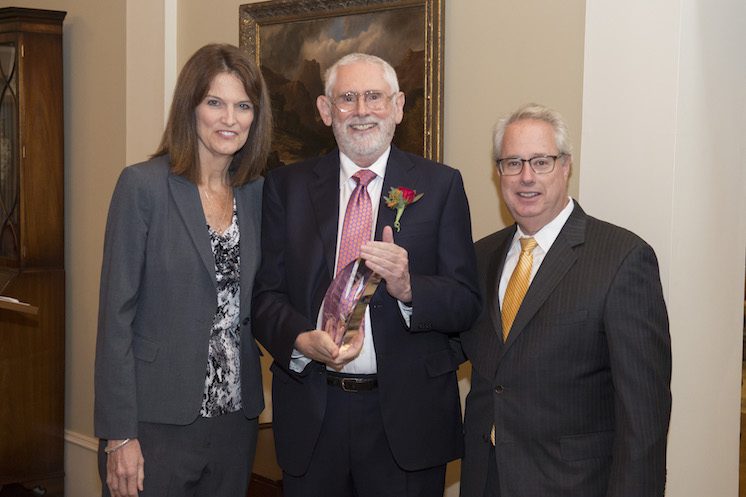
Doug Shore appearing at the Coles Hall of Fame ceremony/Photo via David Caselli
Shore’s entry in the Hall Of Fame comes only a year after he and his wife Robin donated a gift to the business school, forming the Robin and Doug Shore Entrepreneurship Center. He and his family have also previously supporting scholarships and other programs at the business school.
“Doug promotes the mission of the College in all that he does,” Dean Schwaig added. “He provides guidance to me as well as to so many others on campus. Doug believes in entrepreneurship and capitalism, and wants to help our students prepare for successful careers and lives.”
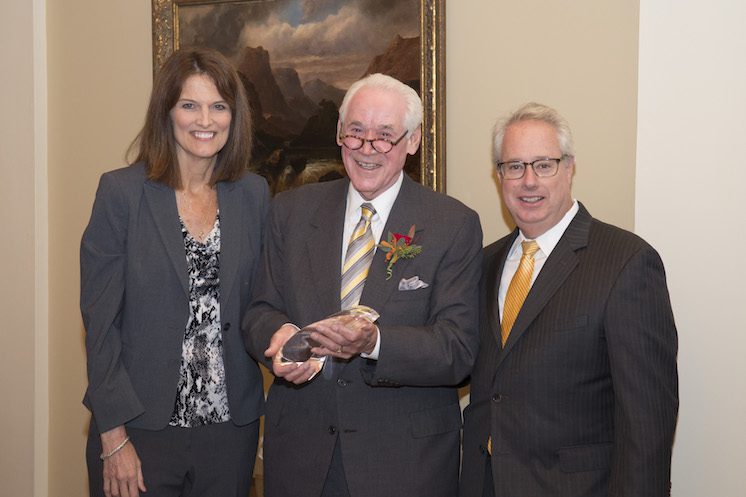
Harry Maziar/David Caselli
For nearly three decades, Maziar was the active President of Zep Manufacturing Company, an Atlanta-based specialty chemical manufacturing institution founded in the late 1930s. After helping fuel multiple decades of growth and a rapid expansion of the employee force at the company, Maizar officially retired as the acting Chairman of the National Service Industries, the parent-company of Zep Manufacturing.
Mazair was the school’s first official Executive in Residence. He is also very familiar with the Atlanta philanthropy scene, previously working with the Junior Achievement of Atlanta, the Atlanta Humane Society, and United Way of Metro Atlanta. He and Shore are officially the 9th and 10th members of the Coles College Hall of Fame, which was introduced in 2015.
For more on the induction, head over to the official Kennesaw State University website.
Mays and Humana Partner for Healthcare Analytics Competition
The Texas A&M University – Mays Business School will serve as host for the university’s first-ever healthcare analytics case competition, partnering with Humana Inc. to showcase student’s analytic ability.
The Houston International MBA Programs You Need To Know
Pursuing higher education in Houston does not have to mean that students are tethered to one city—or even one country—the entire time they are in school.
Below, we’ve laid out the four best Houston international MBA programs.
C.T. Bauer College of Business – University of Houston
The University of Houston’s C.T. Bauer College of Business offers several options for aspiring MBAs who want to learn to navigate the global marketplace. All of Bauer’s Executive MBA students have the opportunity to do an International Business Residency (IBR) between their first and second years. Each class travels together to a country determined in advance by program coordinators. The IBR is seven days long, and students will use these days to meet with foreign political figures, experience the country’s culture, and tour global companies.
Bauer also offers a Global Leadership Executive MBA for students who want their entire education to focus on a broader perspective of business. Students can also apply for the Global Energy Executive MBA to obtain a greater understanding of the expansive energy industry. Bauer grad students can choose from a variety of study abroad programs in places like India, Berlin, Chile, China, and Paris.
Cameron School of Business – University of St. Thomas
MBA students at the Cameron School of Business can choose to pursue a concentration in international business, that will include a plethora of courses that provide insight into the global economy. All MBA students can seek approval from the dean or associate dean to receive elective credit for the study abroad course, MBA 5394: Special Topics. This option is provided during the Summer II session of the program.
READ THIS: The Most Common Business School Application Mistakes
Rice University – Jones Graduate School of Business
At Rice University’s Jones Graduate School of Business, all full-time MBA students take a Global Immersion Program. Students participate in this program in May after their first year of school, lasting from seven to ten days. In May, 2018, full-time MBA students will travel to Brazil to do consulting projects for different companies. This program is highly beneficial, as students’ roles within the abroad projects are tailored to their specific concentrations. Rice also offers Global Intersessions, in which professors spearhead trips to different countries. The 2017 and 2018 Intersessions will take place in China and Colombia. In addition to the Global Immersion Program and Global Intersessions, Rice students can international seminars abroad, generally hosted by other business schools.
University of Houston – Downtown
The University of Houston-Downtown offers an MBA in International Business that is specifically geared toward students seeking careers in risk management, finance, and supply chain management within a global corporation. To earn this degree, students must take 10 separate core courses, not including the courses required for their concentration. This program can be completed in 12 months, and is designed to help students become comfortable with international finance markets, the laws of international business, strategic sourcing and purchasing, as well as a host of other topics.
The San Francisco One-Year MBA Programs You Need to Know
One-year MBA applicants already know which industry or area of concentration they want to pursue. They are MBA candidates who want to advance their current careers, rather than change them. Others chose the one-year route because it can be difficult to leave two years of work and salary. If you’re a prospective MBA in the San Francisco metro looking to make moves within your industry, we’ll show you what One-Year MBA options are out there for you.
Who Pursues One-Year MBA Programs?
According to U.S. News & World Report, accelerated MBA programs appeal to those who want to continue working in the same industry but want to move into a higher position; those who want to save time and money; and those who may want a faster return on investment for their MBA.
One-year MBAs condense what would be a semester’s worth of core business courses in a full-time program into only a few weeks. Most incoming students enter with a strong base of business knowledge. One-year programs typically do not feature a summer internship, which means that accelerated MBAs may not offer the same career opportunities that a full-time program does.
Popular One-Year MBA Programs
One-year programs have been popular in Europe for years, but have grown in popularity stateside over the past decade. Not all business schools offer a One-Year MBA, but a handful of top schools do, including:
- The Columbia Business School – Accelerated MBA Program
- The Kellogg School of Management – One-Year MBA Program
- The Johnson School (Cornell University) – Accelerated MBA
- The Goizueta Business School (Emory University) – Full-Time MBA, One-Year Experience
One-Year MBA Offerings in San Francisco
San Francisco is the cultural, commercial, financial, and educational epicenter of Northern California and Silicon Valley. Naturally, it is also home to some of the country’s premier business schools, like UC Berkeley’s Haas School of Business and Stanford University Graduate School of Business. However, those schools do not offer One-Year MBA programs.
Schools in the Bay Area that offer Accelerated MBA programs are:
- San Francisco State University College of Business
- Lucas Graduate School of Business – San Jose State University
Let’s take a closer look at these school’s One-Year MBA offerings.
San Francisco State University College of Business
San Francisco State’s full-time MBA degree is known as the Fast-Track MBA. The program features both afternoon and evening classes and can be completed in 12 months.
In order to graduate, students must fulfill a Professional Development Workshop series, eight foundation courses and ten advanced requirement courses. In the first semester of the program, students complete 15 units of core coursework, along with four workshops. After completing these requirements, students select 15 units of electives from nine possible areas of specialization, such as Accounting, Operations Research, Electronic Commerce, Finance, Information Systems, International Business, Management, Marketing, and Sustainable Business.
The program ends with a case study in Strategic Management, which evaluates strategy formulation, implementation, techniques and decision-making in the context of the economic, social, political and competitive global environment.
Tuition costs for the San Francisco State Fast-Track MBA program amount to $3,540 plus $270 per unit for part-time California residents and $5,546 plus $270 per unit for full time residents. For out of state and international students, part-time tuition is $3,540 plus $666 per unit while full-time tuition is $5,546 plus $666 per unit.
Lucas Graduate School of Business
Lucas Graduate School of Business at San Jose State offers an Early Career MBA Accelerated Track, designed for individuals who are willing to follow a very intense academic pace and wish to complete their MBA degree in 12 months. The fast-paced program is made up of 2-3 courses per session with 6-8 weeks of courses per class. The program is offered once a year starting in fall, and spans 12 months.
The Early Career MBA curriculum consists of 42 semester credit units containing 11 core courses and four electives. The core courses are often prerequisites to electives, such as Business Communications, Managing in the Global Economy, Developing and Managing People, Accounting Principles, Marketing Management, Law and Ethic, Managerial Decision Analysis, and Silicon Valley Experience.
Following core coursework, students must take a minimum of four classes (12 units) of elective coursework in the disciplines of: Accounting, Finance, Marketing, Organizational Development, Global Business Development, Entrepreneurship and Venture Development, Information Systems, and Operations Management. Students may also participate in an international semester in the summer term.
Tuition costs for the Accelerated MBA program is $25,072 for in-state residents and $41,704 for out-of-state residents.
Admissions Tip: Word Limits and Character Counts
MBA candidates naturally have a good deal of information they want—and need—to convey in their materials, and getting the important ideas down under restrictive word counts is a difficult task. While it might be tempting to run a bit beyond the guidelines to slip in that one extra thought, it’s important to keep the reasons for these limits in mind.
Essay Word Limits
In addition to being a medium for explaining your goals and sharing your story, the essays and short answers also serve as a test of the applicant’s ability to communicate clearly and concisely, not to mention follow directions and answer a question. Because business schools and post-MBA employers place a premium on all of these elements, adhering to word and character counts ultimately works to the candidate’s advantage.
Another important consideration is the reader’s time. Because of high application volume and the need to give every applicant fair and thorough consideration, schools are forced to limit the amount of information in each file. If you consistently extend your answers beyond the suggested limits, you are essentially asking the reader to give you more time than they are devoting to the other applicants. In other words, if you were to ignore the limits and overshoot by 30 percent throughout, this might imply that you consider yourself to be 30 percent more interesting than everyone else who applied – which could create concerns for your own lack of self-awareness.
That being said, there can be some leeway. For the vast majority of programs, it’s generally acceptable to exceed the word limit by 5 percent. There are, of course, a few exceptions:
- Caveat #1: If a school gives you a range (e.g., 250-750 words), you should ideally stay within that range.
- Caveat #2: If a school gives you a page limit (e.g., 2 pages), you should stay within that limit – without excessive margin manipulation or font size reduction.
- Caveat #3: In the rare case that a school’s application system truncates the answer once the limit is exceeded, then it is absolutely important to remain under the limit.
In terms of the other end of the length issue, it is unwise to consistently fall more than 5 percent below the limits; this is valuable room in which to share further relevant information about your candidacy. By falling short, it might signal a lack of effort on your part for developing your best application, or a lack of experiences or accomplishments for you to share with the admissions committee. There is one exception to this, the schools’ optional essays. While some of these essays include word count limits, brevity is typically the rule when choosing to include additional information; the word limit should not be the target.
Beyond the long-form essays that most schools require, many programs also include what are commonly referred to as ‘short answer’ questions in their application data forms. These range from schools asking candidates to describe their post-MBA career plans in a sentence or two to broader queries about how a candidate first learned of a given MBA program. In these ‘short answers’ schools often use character limits instead of word count, and their online systems often truncate responses that run long. As such, we advise a more strict adherence to the word count or character limits associated with ‘short answers’
Best of luck to all those fine tuning their applications!
This article has been edited and republished with permissions from Clear Admit.
Tech MBA
NYU Stern School of Business Tech MBA Program Structure
The NYU Stern School of Business Tech MBA is a one-year program that requires 52 credits to complete. The first summer of the Tech MBA program includes the entirety of the business core courses, some tech core courses, and the Stern Solutions NYC Immersion. After that, subsequent semesters contain the remainder of the tech core courses, Stern Solutions Project courses, and electives.
Curriculum
The NYU Stern School Of Business Tech MBA is built around project-based learning, dubbed Stern Solutions. This allows students a unique opportunity to earn more hands-on experience than traditional MBA programs. First, courses begin with direct industry preparation and immersion with New York City companies. These include live cases with professional partners and company visits. After that, students will complete real-world company projects. They spend a two-week immersion in Silicon Valley in January, and finally present a business incubation plan at the end of the program.
Class Profile
The NYU Stern School of Business Tech MBA Class of 2021 features 45 students that are, on average, 29-years old. Among the class, 49 percent are women. In addition, 40 percent hold international citizenship and 20 percent are underrepresented U.S. minorities.
On average, these students joined the program with GPA middle 80 percent ranges of 3.14-3.73 and a GMAT range of 620-720. Students had an average of 6 years of previous professional work experience.
Careers
Stern’s Office of Career Development launches an “Ignite” career development program as soon as classes begin in September. There, panels are hosted each Friday throughout the year. They feature industry presentations, resume reviews, networking workshops and mock interviews, for instance. After that program, second-year students have access to career coaches, who offer personalized advice on resumes and job search strategies and conduct mock interviews.
Tuition, Scholarships, and Financial Aid
The total estimated cost of tuition and registration fees for NYU Stern Tech MBA students is currently $53,159 for the spring semester, $46,162 for the summer semester, and $52,815 for the fall semester. This accounts for room and board, books, supplies, local travel, extra costs, and loan fees over the course of one year.
Tech MBA students may, however, apply for financial aid, scholarships, and graduate fellowships. Typically, students will receive these awards at the time of admission.
U.S. citizens and permanent residents applying to Stern’s Tech MBA program are eligible for federal Stafford and Graduate PLUS loans, as well as private loans. International students are eligible for private loans, either with or without a U.S. co-signer. Loans not requiring a co-signer include the UFSB Stern International Loan, offered through the First Marblehead Corporation and Union Federal Savings Bank; the Global Students Loan, offered through the Global Student Loan Corporation to students from India; and the BAEF MBA Fellowship, offered through the Belgian American Educational Foundation Inc. to Belgian citizens. International students with a U.S. cosigner are available for numerous private loans up to the full cost of attendance. They are provided with a list of these options upon receiving offers of admission.
Admissions
Applicants to the NYU Stern Tech MBA program must have an undergraduate degree. However, there are no minimum GPA or standardized test score requirements for admission.
Applicants to the full-time MBA program must submit the online application. In addition to the application, they must submit test scores from either the GMAT, GRE, or EA exams, a professional resume, and a separate Work History Form provided by Stern on its application website. Stern also requires applicants to submit two essays, two professional recommendations, undergraduate transcripts and proof of degree conferrals and an application fee of $250. All applicants whose native language is not English and who have not completed academic studies in an English-speaking country, or a country where English is the primary language used in education, must take the TOEFL exam and submit their scores with their applications.
Application deadlines are as follows:
| Deadline | Initial Notification* By | |
| 1st Deadline | September 15, 2021 | December 1, 2021 |
| 2nd Deadline | November 15, 2021 | February 1, 2022 |
| 3rd Deadline | January 15, 2022 | March 1, 2022 |
| 4th Deadline** | February 15, 2022 | April 1, 2022 |
| *You will receive one of three initial notifications: invitation to interview, waitlist offer, or denial of admission | ||
| **Only U.S. Citizens and Permanent Residents may apply by this deadline. Applicants who are non-U.S. citizens at the time of submitting their application must apply no later than the January 15 deadline. | ||


